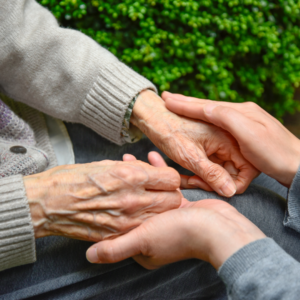 Dementia Caregivers
Dementia Caregivers
With over 5 million people in the US with Alzheimer’s and/or dementia, more and more families are tasked with caring for a loved one who suffers from these tragic diseases. A long-term continuing care retirement community (CCRC) can be of great assistance, but it’s also important to educate and empower the family and loved ones. This article will provide insight on how to care for and communicate with a loved one with Alzheimer’s and/or dementia.
ADAPTING THE HOME
When an Alzheimer’s or dementia patient still lives at home, there are many concerns that must be addressed regarding safety. While we always want to treat these patients with love and dignity, we must remember that they often have poor memory, difficulty following instructions, and periods of agitation or irritability. So, like young children, we must adapt their living environment to accommodate for these shortcomings. Cooking appliances must be adapted with safety mechanisms to avoid something being left on and the risk of fire. Door and window alarms may need to be installed. Hazardous materials may need to be stored in a locked cabinet.
HELP IS EVERYWHERE YOU LOOK
Caregivers are often overwhelmed, uncertain, or scared. However, there are a variety of support groups available for both the patient and the caregiver – you just need to ask! Many of these groups can be found through local doctors, hospitals, social services, and nursing providers. Often, these groups are structured to provide activities for the patient, while the caregiver attends a support meeting giving the caregiver a much-needed break. Other caregivers and professionals can share resources and strategies to help overcome routine challenges.
ASSISTED LIVING
There are many benefits to assisted living facilities, for both the patient affected by Alzheimer’s or dementia and primary caregiver. Assisted living facilities often provide freshly prepared meals each day, bathing assistance, dressing assistance, incontinence care, and more.
The most important thing to remember is that the caregiver must not sacrifice their own health and well-being. Even if you live in a CCRC, it’s important for the caregiver to get a mental and physical break from caring for and communicating with their loved one. Enlist the help of family, friends, neighbors, and other members of your church and community for help. If you or a family member is suffering from Alzheimer’s or dementia, contact Baywoods of Annapolis today for a private tour and consultation.












